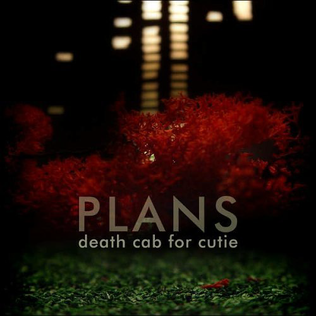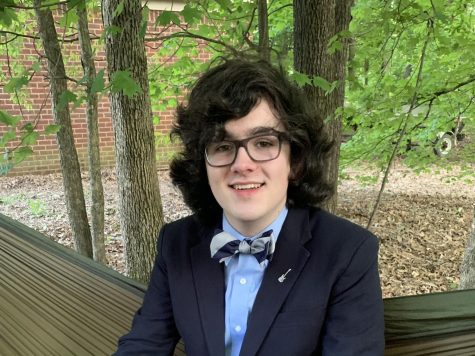‘Plans’: Death Cab’s emotional masterpiece, 15 years later

Atlantic and Barsuk [Fair Use]
“Plans” by Death Cab for Cutie recently celebrated its 15th anniversary.
September 22, 2020
Seattle indie-rock band Death Cab for Cutie celebrated 15 years of the release of their major label debut “Plans” on Aug. 30, a record that refined and distilled their rough, post-emo sound into beautiful indie-pop melancholy.
“Plans” followed Death Cab’s 2003 breakthrough “Transatlanticism,” which dealt with physical and emotional distance in relationships in a balanced mix of blaring, emotionally-charged rock songs (“The New Year,” “We Looked like Giants”) and downtempo, bittersweet acoustic ballads (“Title and Registration,” “A Lack of Color”), receiving significant critical acclaim. The success of “Transatlanticism” brought the band extensive airplay on influential shows like “The O.C.” (“Do not insult Death Cab!” exclaims Seth Cohen in one episode), ballooned expectations for Death Cab’s next album and heightened pressure on the band to sign with a major label. Though critics did not receive “Plans” as well as earlier Death Cab records, the album has stood the test of time as, I believe, a masterpiece of indie songwriting that precisely combines individual musical textures to profound effect.
In a similar fashion to its predecessor, “Plans” is a loose concept album, but instead of distance, it directs the listener’s attention at a much more abstract idea: the fundamental uncertainty underlying any plan or expectation. In an interview with Mix magazine, frontman Benjamin Gibbard said, “One of my favorite kind of dark jokes is, ‘How do you make God laugh? You make a plan.’ Nobody ever makes a plan that they’re gonna go out and get hit by a car. A plan almost always has a happy ending. Essentially, every plan is a tiny prayer to Father Time.”
With this in mind, fans like to analyze the album as having three acts, each of which addresses a facet of this broad theme.
“Plans” begins its sweeping exploration of emotion with “Marching Bands of Manhattan,” a song that grows beautifully and with such care from the expansive opening organ chords through the heart-wrenching verses to the head-banging ending bridge, leaving me reeling with every repeated listen. The bridge lyric, which has served as the backdrop for so many of the tough breakups and endings I’ve had, perfectly sets the mood for the album: “Sorrow drips into your heart through a pinhole / Like a faucet that leaks, and there is comfort in the sound / But while you debate half-empty or half-full / It slowly rises; your love is gonna drown.”
“Marching Bands” and the next three songs—”Soul Meets Body,” “Summer Skin” and “Different Names for the Same Thing”—make up the first act and most upbeat third of the album. “Soul Meets Body” swirls up out of the cliff-dive ending of “Marching Bands” with experimental guitar textures, a driving drum groove and that catchy “ba-da-ba” hook, all of which set the scene for the song’s lyrical discussion on how to live life “where soul meets body,” with meaning and purpose. The somber “Summer Skin” comes next, its repetitive structure and flowing, walking bass line complimenting three simple verses dealing with the end of summer and the end of a passionate, carefree love: “I knew your heart I couldn’t win / We’d left our love in our summer skin.” “Summer Skin” gives way to “Different Names for the Same Thing,” an orchestrally rich, ambitious and noisy ode to impossible-to-communicate emotions that serves as a fitting end to this section of the record.
“Different Names” falls off into silence, giving the listener a moment to collect their thoughts before moving into the simple and profound song that stands as Death Cab’s magnum opus: “I Will Follow You into the Dark.” Benjamin Gibbard flits his fingers through simple guitar chords and weaves together a promise of love that transcends life and death, that exists not as a “prayer to Father Time” but a truth all its own. The song accepts death as a fact of life but looks beyond it to the incredible depth of meaning to be found in mortality (“Death is the mother of beauty”) and the lasting peace that accompanies living for each moment and appreciating every aspect of life. Crying your heart out to “I Will Follow You,” I believe, is an essential life experience.
“I Will Follow You” introduces act two of “Plans,” a section which deals with lost love and new beginnings. Coming next are “Your Heart Is an Empty Room” and “Someday You Will Be Loved,” two full and fluid songs about moving on that, while beautiful in their own right, fall a little bit flat in comparison with the rest of the album. The song “Crooked Teeth” provides a nice break from the heavy themes of the rest of the album in the form of a pop-rock lamentation of a dead-end romance (“You can’t find nothing at all / If there was nothing there all along” exclaims Gibbard in the chorus).
The album takes a dark turn coming out of “Crooked Teeth” into its third and final act. “What Sarah Said” acts as an opposite to “I Will Follow You;” the rambling, stream-of-conscious lyrics recounting loss in an impersonal hospital waiting room on top of the tick-tick-tacking drum beat and sweeping piano melody provide a more accurate description of anxiety than any medical definition. The song builds to the tear-jerking conclusion that “love is watching someone die,” then fades slowly, slowly into silence as a flatlining heart monitor with a desperate plea to the listener: “Who’s gonna watch you die?” The raw, pure emotion of this song never fails to reduce me to tears.
Concluding the record in calculated examinations of love and loss are “Brothers on a Hotel Bed” and “Stable Song.” The soft forward movement and sparse orchestration of “Brothers on a Hotel Bed” create a beautiful song for a romance dying of unfulfilled dreams and lost passion, which flows smoothly into “Stable Song,” a final cry out to the listener to learn to live and love in this labyrinth of suffering, to borrow a line from John Green. The song retreats into silence to the soft wail of guitar feedback, and the album is over.
“Plans” might be my favorite record. Death Cab’s impeccable songwriting technique accentuates the album’s raw emotion, from the shrillest highs to the lowest lows, to create an incredible and unique musical experience that I so dearly love. Since the release of “Plans,” Death Cab for Cutie has fallen away from the musical distinction that marked their early years, creating largely unmemorable records like 2018’s “Thank You For Today.” Whatever the band may make in the future, though, “Plans” will continue to stand as a monolithic accomplishment in its discography. “Plans” has aged well in 15 years, and I hope its merits will still be recognized in 15 more.









Geoff • Apr 15, 2023 at 5:17 pm
This is a really good review of a profound, complex and emotionally rich album. I struggle to comprehend how such young writers (at the time) could come up with such as Brothers on a hotel bed. I’m only just understanding that at 71.!!!!
I do like some of their later albums including Asphalt Meadows but Plans is an all time masterpiece.
Fresca • Jan 10, 2023 at 12:37 am
I completely agree-I have not been interested in listening to any other death cab for cutie album since Plans! I listened to narrow stairs but it fell short of my expectations. So I’ve been a decade in the dark about what ben gibbard has been up to the last 10 years. I was ecstatic to hear the announcement of the Give up and Transatlanticism 20th anniversary tour and immediately looked up tickets. I started looking up articles on death cab and reading about Ben Gibbard. It was like catching up with an old friend. He stopped drinking in 2008, lost the weight, looks and sounds different. The last time I listened to him it seemed like him and I were both depressed and unsure where life would take us. Listening to him sing always felt like hanging out with a friend. He definitely seems much happier these days, maybe that’s why his music isn’t as good xD Thanks for reading.
Sebeth • Jun 10, 2022 at 3:29 pm
I found your article after I was listening to Plans today. It is also one of my all-time favorite albums, being so beautifully crafted and well written.
I had to tell you how much I enjoyed your article and your analysis of the album as well as the individual songs. I know this article is a few years old now but thank you again for spotlighting it.